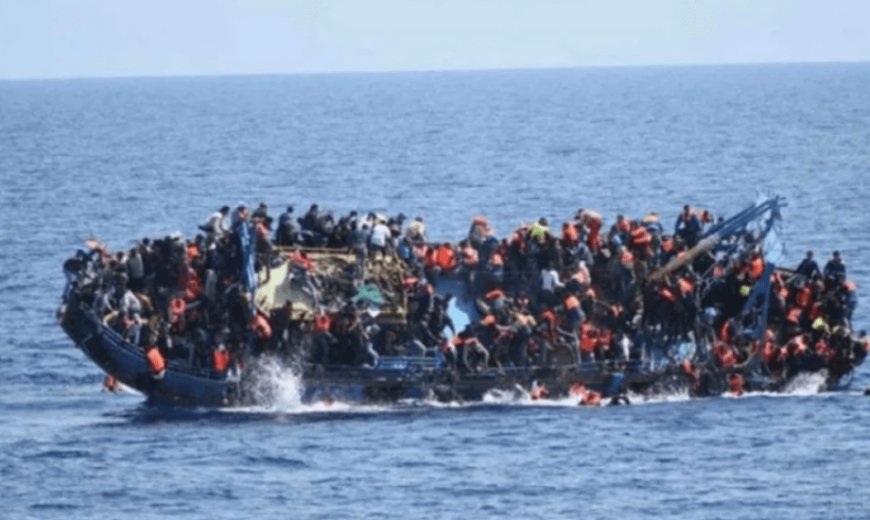Deadly Boat Tragedy Off West Africa: At Least 70 Gambian Migrants Lost Amid Climate and Conflict Pressures
A migrant boat capsizing off West Africa has claimed 70 lives. The tragedy, driven by climate shocks, conflict, and poverty in Gambia, underscores a lethal migration crisis along the Atlantic route.

A Humanitarian Catastrophe Unfolds
A devastating shipwreck off the coast of West Africa has claimed the lives of at least 70 migrants, according to the Gambian Foreign Ministry—marking one of the deadliest recent tragedies along the perilous Atlantic migration route to Europe. The vessel, believed to have set sail from Gambia, carried approximately 150 passengers, predominantly Gambian and Senegalese nationals. Only 16 survivors were rescued, while reports suggest that up to 30 more may have perished, with local accounts hinting that the true death toll could exceed 100 ReutersThe GuardianAP News.
The Route and the Risks
This route—stretching from the West African coast toward the Canary Islands and onward to Europe—is notoriously treacherous. Migration experts warn that overcrowded, unseaworthy boats, unpredictable seas, and ruthless trafficking networks make it one of the world’s deadliest passages ReutersThe GuardianWikipedia.
Why Gambians Take the Dangerous Journey
Several interlinked factors are driving this exodus:
1. Climate Extremes and Food Insecurity
Flooding, degraded farmland, and climate shocks have hit rural communities hard, reducing livelihoods and leaving many without a viable future WikipediaAP News.
2. Rising Conflict in the Sahel
Expanding jihadist activity across the Sahel and encroaching instability in rural areas are forcing families to flee, sometimes sensing escape as their only option Africa Centersihma.org.za.
3. Economic Desperation and Remittance Pressures
Nearly 10% of Gambia’s population lives abroad, with remittances forming a vital lifeline for local households. Yet, these remittance-driven departures come at a steep human cost—often involving separation, vulnerability, and peril AP News+1.
4. Smugglers and Desperate Networks
People smugglers exploit these intersecting crises, connecting refugees to dangerous migration routes across seas and deserts. Wikipedia
Survivors’ Voices: Harrowing Testimonies
Survivors recount harrowing scenes: families packed into flimsy vessels, stormy waters slamming the craft, and capsizing resulting from panicked crowding. One survivor told Reuters that the boat overturned soon after passengers saw lights on shore—likely triggering a rush that tipped the vessel The GuardianReuters.
Data Snapshot: Migration Tragedies in Context
| Year | Route/Incident | Estimated Deaths |
|---|---|---|
| 2025 | Boat capsizes off Mauritania (from Gambia) | 70 confirmed, ~30 feared missing ReutersThe Guardian |
| 2024 | Nouakchott disaster: pirogue from Gambia capsizes | 15+ killed, ~195 missing Wikipedia |
| 2024 | IOM: Atlantic route death toll since 2014 | 4,500+ deaths/disappearances Wikipedia |
These figures reveal a frightening trend—each year sees more desperate crossings and growing fatalities.
Gambia’s SOS: A Government in Crisis
In the wake of the tragedy, Gambia’s foreign affairs ministry issued a heartfelt plea urging citizens to refrain from attempting such lethal voyages TRT GlobalThe Guardian. Yet with limited local opportunity and climate pressure mounting, migration pressures remain high.
At the same time, developments at home are fueling the crisis: A brewing conflict between Gambian fishermen and foreign trawlers—described as a “sea war”—has further destabilized livelihoods, pushing even more toward migration as their incomes vanish AP News+1.
A Call for International Solidarity and Action
To prevent further loss of life, a sustained, multi-faceted response is essential:
-
International Aid
Funds must prioritize rebuilding livelihoods, supporting climate-resilient agriculture, and delivering social services in rural Gambia. -
Anti-Smuggling Measures
Cross-border cooperation is urgently needed to disrupt trafficking networks—not just through law enforcement but by improving legal migration and asylum pathways. -
Safe Migration and Awareness Campaigns
Public messaging, survivor education, and safe transit corridors would help reduce the appeal of irregular routes. -
Emergency Preparedness and Search-and-Rescue
Coastal response systems and rapid intervention resources in countries like Mauritania and Gambia could reduce mortality in emergencies.
Final Thought: Crisis at Sea, A Broader Warning
The tragedy off Gambia’s shores is more than a single shipwreck—it underscores a profound climate-conflict nexus driving human suffering. It is a call to action: without concerted humanitarian, environmental, and geopolitical support, desperate men and women will continue to hazard—and lose—their lives for a shot at survival.
What's Your Reaction?
 Like
0
Like
0
 Dislike
0
Dislike
0
 Love
0
Love
0
 Funny
0
Funny
0
 Angry
0
Angry
0
 Sad
0
Sad
0
 Wow
0
Wow
0









































































